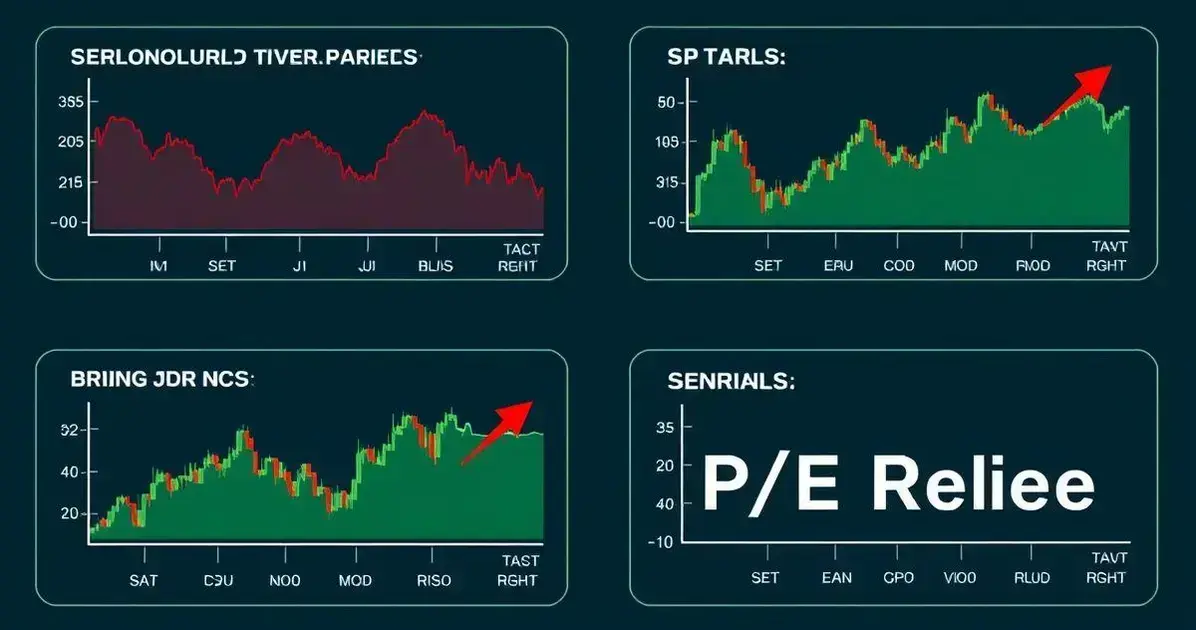ADVERTISEMENT
When it comes to investing, stock market analysis is crucial for making informed decisions.
By understanding market trends and utilizing various analytical tools, investors can significantly enhance their chances of success.
ADVERTISEMENT
Understanding Stock Market Trends
Understanding stock market trends is essential for investors who want to make smart choices.
Trends simply show how the prices of stocks move over time.
ADVERTISEMENT
By observing these patterns, you can get a clear idea of whether a stock is likely to rise or fall, helping you decide when to buy or sell.
There are two main types of trends to look out for: upward trends and downward trends.
An upward trend means prices are generally increasing, which is a good sign for investors.
Conversely, a downward trend indicates prices are falling, warning you to be careful. Recognizing these trends can help you time your investments better.
Keeping an eye on stock market trends helps you stay aware of the overall market mood.
Factors like economic news, company performance, or global events can influence these trends.
By staying informed, you can use stock market analysis to boost your investment results and maximize your returns.
The Role of Technical Analysis
The role of technical analysis in stock market analysis is to help investors make informed decisions.
This technique uses charts and data to examine price movements and trading volumes of stocks.
By studying these elements, you can identify patterns that may suggest future price changes.
One key aspect of technical analysis is the use of indicators.
These are mathematical calculations based on price and volume that help you understand the strength or weakness of a stock.
Common indicators include moving averages and the Relative Strength Index (RSI). They provide signals that can guide your buying or selling actions.
Technical analysis is not about predicting the future with certainty, but it does help investors manage risks.
By knowing when to enter or exit a stock, you can enhance your chances of making better profits.
In this way, technical analysis plays a vital role in boosting your investment success.
Fundamental Analysis Explained
Fundamental analysis is a method used by investors to evaluate the value of a stock.
It involves examining a company’s financial health through various factors, such as earnings, revenue, and growth potential.
By understanding these elements, you can make wise investment decisions that align with your financial goals.
One important part of fundamental analysis is looking at a company’s financial statements.
These documents provide details about how much money a company makes and spends.
They show how well a company is doing compared to others in the same industry. This helps investors identify strong stocks to invest in.
Fundamental analysis also considers broader economic factors, like market trends and interest rates.
These factors can influence a company’s performance and stock price.
By combining all this information, investors can form a complete picture of a company’s worth, which is key to maximising your returns in the stock market.
Common Stock Market Indicators

Common stock market indicators are tools that help investors understand market behaviour.
These indicators provide valuable insights into price movements and trends.
Some popular indicators include the Moving Average, which helps smooth out price data over a specified period.
Another is the Relative Strength Index (RSI), which shows whether a stock is overbought or oversold.
Another important indicator is the Volume Indicator. Volume tells you how many shares are being traded during a certain time frame.
High trading volumes can signal strong interest in a stock, while low volumes might suggest the opposite.
This information can help investors decide whether to enter or exit a trade.
Lastly, the Price-to-Earnings (P/E) Ratio is a widely used measure that compares a company’s current share price to its earnings per share.
A high P/E ratio might indicate that a stock is overvalued, while a low ratio could suggest it is undervalued.
By understanding these common stock market indicators, investors can make more informed decisions that maximise their returns.
Risk Management Strategies
Risk management strategies are essential for protecting your investments in the stock market.
One effective approach is diversification, which involves spreading your investments across different assets.
By investing in various sectors or companies, you lessen the impact of a poor-performing stock on your overall portfolio.
This way, even if one stock drops, others may rise, balancing your returns.
Another important strategy is setting stop-loss orders. A stop-loss order automatically sells a stock when its price falls to a certain level.
This helps limit your losses and protects your capital from significant downturns. Using stop-loss orders wisely can be a lifeline in volatile markets.
Finally, continuously reviewing your investment strategy is crucial. Markets change, and so do personal goals.
Regularly assessing your portfolio allows you to adapt to new information and trends.
By implementing these risk management strategies, you can enhance your ability to maximise returns while safeguarding your investments.
Tips for Successful Stock Trading
Tips for successful stock trading start with having a solid plan.
Before making any trades, it’s important to set clear goals and understand what you want to achieve.
Decide how much risk you are willing to take and stick to your plan. Having specific targets can help guide your decisions and prevent emotional trading.
Another tip is to stay informed about market trends and news.
Regularly reading financial news and updates can provide valuable insights into how external factors affect stock prices.
Understanding market dynamics allows you to make better decisions and take advantage of opportunities when they arise.
Lastly, practice patience and discipline. Successful traders know that not every trade will be profitable.
It’s important to stay calm during market fluctuations and not to rush into buying or selling.
By maintaining a level head and following your trading plan, you can improve your chances of long-term success in the stock market.
Stock market analysis is essential for making informed investment decisions.
By studying price movements, trends, and various indicators, investors can discover valuable insights that help them choose the right stocks.
This process involves both fundamental and technical analysis, providing a comprehensive view of the market.
One important aspect of stock market analysis is understanding economic factors that influence stock prices.
Factors like interest rates, employment numbers, and consumer spending can affect market performance.
By staying aware of these economic indicators, investors can better predict how the market might react to changes.
Moreover, having a strategy in place is crucial for successful stock market analysis.
Whether you prefer to day trade or invest for the long term, consistency and planning play a key role in maximising returns.
By combining thorough analysis with a solid strategy, you can navigate the stock market more effectively and increase your chances of achieving your financial goals.





